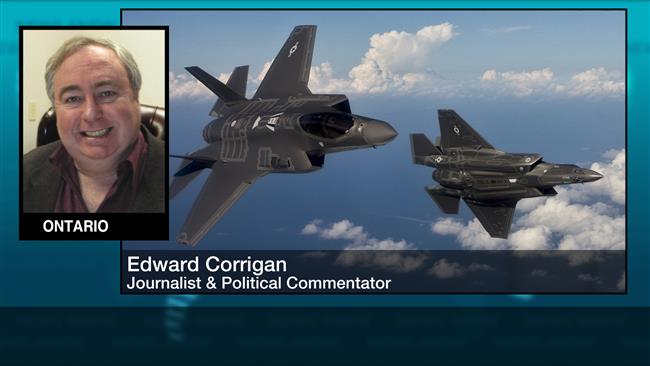Interviewed By PressTV
Ahlul Bayt News Agency - An interview with Edward Corrigan, a political commentator from Ontario, to ask for his insight on the Saudi kingdom’s decision to continue airstrikes on Yemen.
The following is a rough transcription of the interview.
Q: It seems that the Saudis are, as we’ve just said, intent upon continuing this aggression against Yemen, despite the fact that the UN has tried to broker a ceasefire, which was clearly not observed by Saudi Arabia. Why do you think that is so?
Corrigan: The Saudi royal family is afraid of losing control of Yemen as they have lost control and they try to reassert their control. They’re afraid that there will be a popular democratic-based government on its southern border. And of course I think they’re also trying to focus the population of Saudi Arabia on external problems, they alleged Iran’s threat, the fact that Iran’s exposing to threaten them through Yemen.
And this is to avoid focus on the problems inside Saudi Arabia itself. By the decline of price of oil, their incoming money dropped by 36 billion dollars this year and supposed to lose about 300 billion dollars of revenue over the next two years and having a budget deficit for the first time in seven years. And that supposed to reach 40 billion dollars. The Saudi family is pouring a lot of money for its army and its public service workers trying to buy them up.
It really is postponing problems but like many countries, they try to focus on external threats to distract the whole population from problems that exist within the government. Attacking Yemen is very expensive too. There’s a lot of people from Yemen who reside in Saudi Arabia and work there as foreign workers. 15 percent of Saudi Arabia’s population is Shia.
They’re also mainly located in the oil-producing areas of [Saudi] Arabia. And I think that reality is that the Saudi Arabian regime is really House of Cards. Their succession regime is crazy for the all with the sons of Ibn Saud going across until there are the only last two or three left.
Q: Speaking of it being the House of Cards, Mr. Corrigan, how long can Saudi Arabia and the House of Saud keep this upbeat its own internal problems and trying to cover them up or be at this aggression against Yemen?
Corrigan: I would remind people about the shah of Iran. Everybody thought the shah was stable, he was in safe power, he was America’s policeman of the [Persian] Gulf, he was Time magazine’s man of the year in 1978 and 1979.
He was thrown out of the country and fled in disgrace and in exile. The policies that the shah followed, support for Israel, support for the racist state of South Africa, and being sort of America’s watchdog in the area, brought up a great deal of resentment. And Saudi Arabia seems to be falling down the same sort of route. They’re collaborating with Israel.
They’re working with the enemies of the Arabs themselves, and spending billions of billions of dollars supporting al-Qaeda in Syria also al-Qaeda in Yemen. While the Americans suppose they oppose al-Qaeda in Iraq and you’ve got Islamic militants from the Sunni persuasion, who are openly making threats about the Saudi family and how terrible they are, and how they are not following Islam, and how they’re traitors to Islam.
And in fact, there’ve already been a number of explosions and attacks on people, the Shia persuasion in the Arabian Peninsula. So, all of these things show that there’s a problem. So, there’s an article on the Foreign Policy in Focus and the title of it is: “While Saudi Arabia goes to war abroad, it’s simmering at home.”And you have always different problems, they’re going on.
/129

